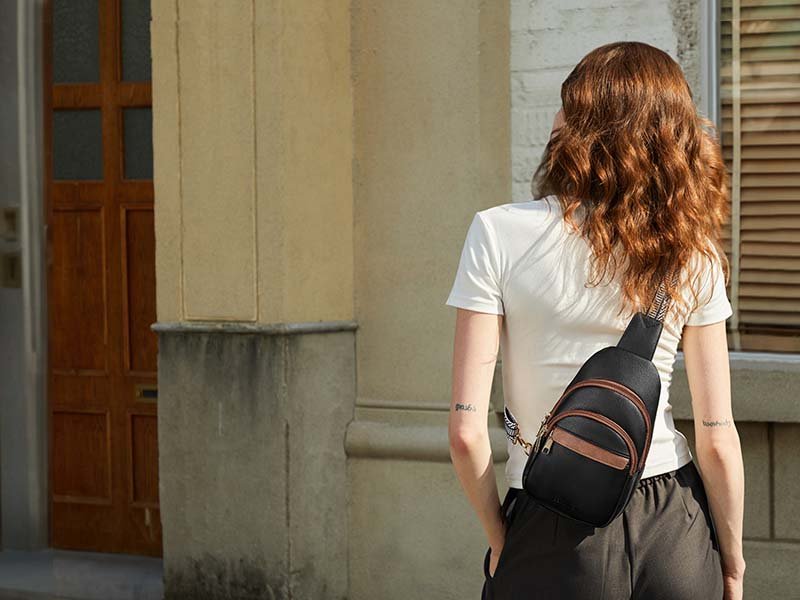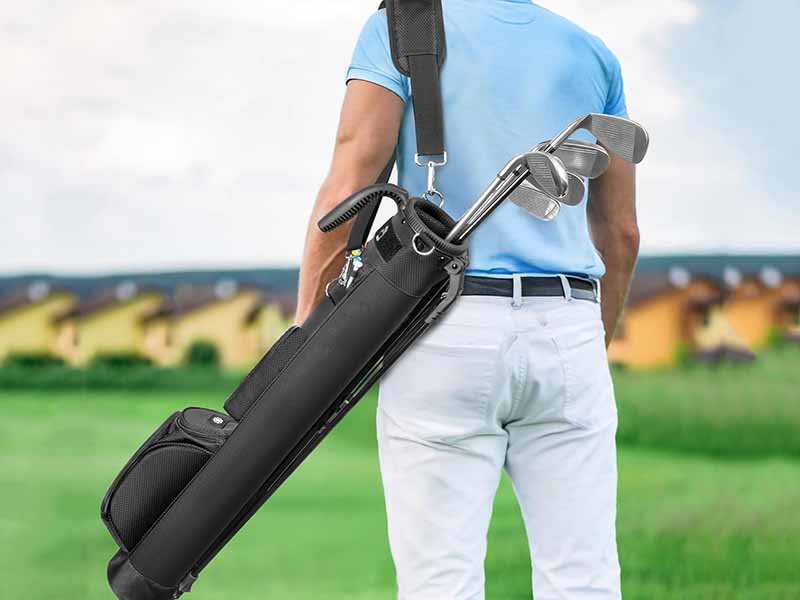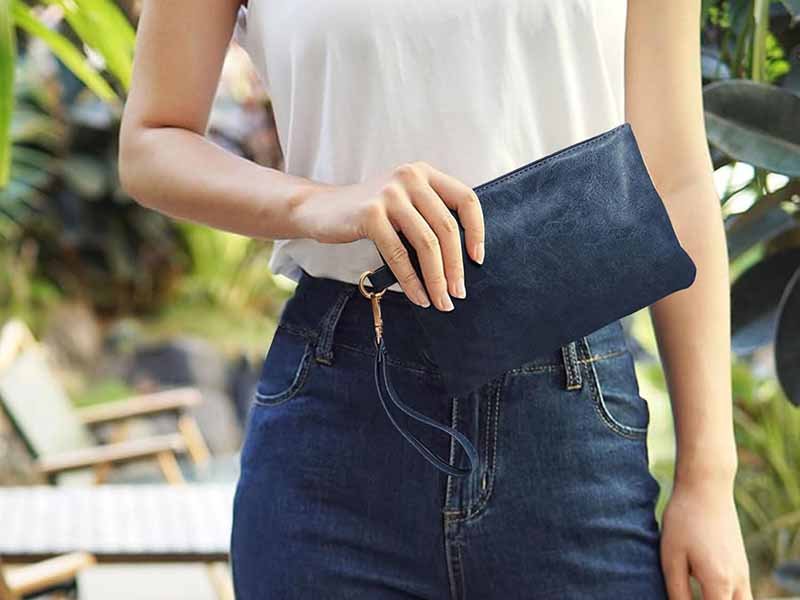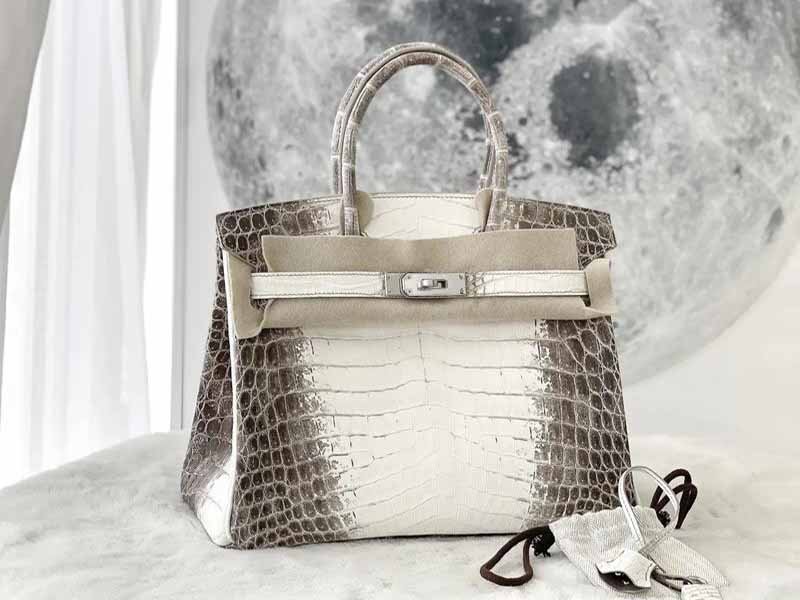Crossbody Bag vs Sling Bag: What’s the Difference & Which Should You Choose?
- Eric
- September 27, 2025
- 10:04 am

For many buyers, the terms crossbody bag and sling bag seem interchangeable. After all, both involve straps, casual styles, and hands-free convenience. Yet, when it comes to fashion appeal, functionality, storage capacity, and ergonomic design, these two styles cater to very different needs.
A crossbody bag typically features a longer, adjustable strap worn across the chest or over the shoulder, offering balanced weight distribution and versatile fashion options. A sling bag, on the other hand, uses a single strap and compact design for quick access, making it ideal for travel, sports, or casual outings. Each serves unique purposes depending on style preference, comfort, and storage needs.
Imagine you’re packing for a weekend trip. Do you choose the chic crossbody bag for city exploring, or the sporty sling bag for cycling through scenic routes? By the end of this article, you’ll know exactly which one suits your lifestyle, fashion goals, or even your brand’s next product line.
What Defines a Crossbody Bag vs a Sling Bag?
A crossbody bag typically features a longer, adjustable strap worn diagonally across the chest or over the shoulder, offering structured shapes, larger storage, and formal or casual versatility. In contrast, a sling bag uses a single strap and compact design for lightweight convenience and quick access, ideal for casual outings, sports, or travel needs where minimalism and mobility matter.
Shape, Size, and Carrying Style Differences
Crossbody bags usually come in rectangular, trapezoidal, or saddle shapes with medium-to-large capacities. They are designed for balanced weight distribution across the torso and often include structured compartments for work, travel, or daily essentials.
Sling bags, on the other hand, feature teardrop or crescent shapes, compact dimensions, and a body-hugging design that makes them perfect for cyclists, hikers, and commuters. They rotate easily to the front for quick access to essentials, but lack the symmetry and balance of crossbody bags for prolonged carrying comfort.
Example:
- Crossbody Bag: A leather messenger bag holding a laptop, documents, and personal items for office commutes.
- Sling Bag: A nylon, waterproof sling carrying a phone, wallet, and keys for hiking or city exploration.
Strap Design and Wearing Positions Explained
Crossbody bags feature long, adjustable straps with optional padding or detachable sections for different carrying preferences. Some include dual-strap conversions to switch between shoulder-bag and crossbody modes, making them fashionably versatile for both men and women.
Sling bags rely on a single, wide strap positioned diagonally across the back or chest. Some models add stabilizing side clips for running or biking, but they remain primarily designed for speed, mobility, and minimalism rather than structured, all-day wear.
Key takeaway: Crossbody bags = comfort + style variety, Sling bags = speed + utility focus.
Typical Materials and Closures
Crossbody bags often use leather, vegan leather, waxed canvas, or luxury fabrics with magnetic snaps, zipper closures, or buckles to complement business, formal, or lifestyle aesthetics.
Sling bags lean toward nylon, polyester, Cordura, or waterproof synthetic blends with rugged zippers, quick-release buckles, or hook-and-loop closures, reflecting their casual, sporty, and travel-oriented DNA.
| Feature | Crossbody Bags | Sling Bags |
|---|---|---|
| Typical Materials | Leather, vegan leather, canvas, suede | Nylon, polyester, Cordura, waterproof PVC |
| Closure Types | Zippers, magnetic clasps, turn-locks | Quick zippers, hook-and-loop, buckle clips |
| Aesthetic Appeal | Casual-to-formal versatility | Sporty, casual, minimalist designs |
| Strap Design | Adjustable, sometimes convertible dual-straps | Single, wide, ergonomic diagonal strap |
| Primary Use Cases | Office, leisure, urban travel | Sports, hiking, cycling, day trips |
Aesthetic & Fashion Compatibility
Crossbody bags easily transition from workplace chic to weekend casual, fitting in with formal outfits, travel wardrobes, and fashion accessories. Designers often add monogramming, embossing, or luxury finishes for premium appeal.
Sling bags, however, maintain a sporty, urban vibe, aligning with streetwear, youth fashion, or adventure markets. They rarely appear in luxury fashion contexts unless redesigned as hybrid crossbody-sling models with leather upgrades.
Functional Purpose & Target Audience
- Crossbody Bags: Professionals, travelers, students, and fashion-conscious consumers seeking style plus utility.
- Sling Bags: Outdoor enthusiasts, cyclists, tech commuters, and minimalists needing lightweight mobility over formal aesthetics.
Branding & Customization Potential
Crossbody bags provide large surface areas for embroidery, foil stamping, or laser engraving, making them ideal for corporate gifting or retail branding.
Sling bags work well for screen printing, heat-transfer logos, or reflective safety branding, targeting promotional events, sports campaigns, or youth marketing projects.
Which Style Offers More Versatility and Comfort?
Crossbody bags generally offer greater versatility, easily transitioning between work, travel, and fashion settings while maintaining comfort through balanced weight distribution. Sling bags deliver lightweight mobility and quick access for outdoor or casual activities but may lack long-term ergonomic support and storage flexibility. The choice depends on lifestyle, purpose, and carrying duration, as well as whether style or functionality matters more to the user.
1. Crossbody Bags for Everyday Fashion and Travel
Crossbody bags are designed to serve multiple environments:
- Work & Office Use: With structured interiors, padded laptop sleeves, and professional aesthetics, they work as briefcases or messenger bags for daily commutes.
- Travel & Tourism: Anti-theft zippers, RFID-blocking pockets, and weather-resistant materials make them reliable companions for city tours and airports.
- Casual Fashion: Designers often incorporate luxury finishes, monogramming options, or convertible straps, allowing crossbody bags to double as fashion accessories for weekend outings.
Example:
- A leather crossbody tote can hold laptops, travel documents, and makeup pouches while looking stylish at conferences or airport lounges.
Pros:
- Balanced comfort over long durations
- Works for both formal and casual settings
- Larger compartments for organization
Cons:
- Slightly bulkier than sling bags
- Less sporty aesthetic for outdoor use
2. Sling Bags for Outdoor, Sports, and Casual Use
Sling bags shine in active lifestyles:
- Sports & Fitness: Compact designs hold water bottles, gym passes, or running essentials without slowing you down.
- Cycling & Hiking: Quick front rotation access lets cyclists grab wallets or phones without removing the bag, ideal for on-the-go users.
- Urban Day Trips: Perfect for minimalists carrying only essentials like phones, chargers, and keys during concerts, festivals, or city tours.
Example:
- A nylon waterproof sling bag keeps your phone and snacks accessible while biking through city streets.
Pros:
- Lightweight and easy to carry
- Quick-access compartments for essentials
- Casual, sporty appeal for younger audiences
Cons:
- Limited storage capacity
- Asymmetrical weight load over time
- Less suitable for formal or business settings
3. Weight Distribution and Ergonomic Considerations
| Feature | Crossbody Bags | Sling Bags |
|---|---|---|
| Carrying Comfort | Even weight balance across torso | One-sided weight, potential strain |
| Long-Term Wear | Suitable for hours of use | Best for short trips or light loads |
| Ergonomic Design | Adjustable straps, padded shoulders | Wide straps, sometimes stabilizer clips |
| Posture Impact | Minimal strain with balanced loading | Risk of shoulder discomfort if overloaded |
- Crossbody Bags: Designed for all-day wear, minimizing back and shoulder strain with adjustable, padded straps and symmetrical positioning.
- Sling Bags: Comfortable for short-term use, but prolonged carrying of heavy items may cause muscle fatigue or posture imbalance.
4. What Are the Disadvantages of a Sling Bag?
Despite their practicality, sling bags come with notable drawbacks:
- Storage Limits: Most sling bags fit only lightweight essentials; laptops or large notebooks don’t fit well.
- Asymmetrical Load: Uneven weight can lead to neck or shoulder discomfort during prolonged use.
- Niche Aesthetic: Their sporty, casual design may clash with formal attire or luxury fashion branding.
How Do Crossbody and Sling Bags Differ in Capacity & Organization?
Crossbody bags offer larger storage capacity, multiple compartments, and structured interiors, making them ideal for daily commutes, travel, or professional use. Sling bags, in contrast, focus on compactness and essentials-only storage, with minimal organizational panels suited for sports, hiking, or casual activities. Choosing between them depends on carrying needs, lifestyle, and customization options for branding or private-label production.
1. Storage Compartments and Interior Layouts
Crossbody bags usually feature:
- Multiple Zippered Sections: For separating electronics, cosmetics, and documents.
- Padded Laptop Sleeves: Protecting laptops or tablets up to 15 inches.
- Interior Slip Pockets: For chargers, stationery, or smaller accessories.
- Exterior Quick-Access Pockets: Ideal for boarding passes, passports, or phones.
Sling bags typically have:
- One or Two Main Compartments: Lightweight interiors for phones, keys, and wallets.
- Front Zippered Pouches: For quick-grab essentials like transit cards or earbuds.
- Hidden Back Panels: Anti-theft compartments for valuables like cash or passports.
Example:
- Crossbody Work Bag: Holds laptops, notebooks, water bottles, and power banks for office commutes.
- Sling Bag for Hiking: Carries sunscreen, a snack bar, and a small camera for day trips.
2. Capacity Range: Volume and Size Comparison
| Feature | Crossbody Bags | Sling Bags |
|---|---|---|
| Typical Volume (Liters) | 10–25L | 5–12L |
| Max Laptop Size | 13–15 inches (padded sleeves) | Tablets or mini-laptops only (up to 11”) |
| Daily Essentials Storage | Wallets, cosmetics, notebooks, electronics | Wallet, phone, keys, compact accessories |
| Travel Gear Compatibility | Power banks, chargers, documents, clothing | Snacks, sunglasses, water bottle |
| Weight Limit (Avg.) | 5–8 kg for premium models | 2–5 kg for casual daypacks |
3. Best Use Cases for Each Style
Crossbody Bags:
- Office Professionals: Laptops, meeting notes, chargers, and pens organized in multiple compartments.
- Travelers: Boarding passes, RFID-blocking wallet sections, and secure passport pockets.
- Students: Books, stationery, and water bottles without feeling overloaded.
Sling Bags:
- Sports & Fitness Enthusiasts: Gym passes, energy bars, and water bottles in a compact frame.
- Cyclists & Hikers: Quick access to maps, sunglasses, or snacks while on the move.
- Urban Minimalists: Lightweight carrying for essentials during shopping or concerts.
Example: A crossbody tote with five compartments suits a corporate gifting program, while a nylon sling with two zippered pockets works for marathon sponsorship giveaways.
4. Organizational Features & Innovations
Modern crossbody bags now integrate:
- USB Charging Ports: Built-in power access for commuters.
- RFID-Blocking Layers: Protection against electronic theft.
- Expandable Bottom Panels: For business trips requiring occasional overnight storage.
Sling bags increasingly feature:
- Hydration Pack Compatibility: For hikers or cyclists.
- Reflective Safety Panels: For night runners or bikers.
- Convertible Straps: Switching between shoulder and chest positions.
5. Ergonomics
- Crossbody Bags: Even weight distribution thanks to structured panels keeps bulk spread across the body, reducing shoulder fatigue during prolonged wear.
- Sling Bags: Compact layouts prioritize speed over symmetry; carrying heavier items on one shoulder may lead to discomfort if worn for extended periods.
Are Crossbody or Sling Bags Better for Fashion & Branding?
Crossbody bags dominate fashion markets with versatile designs, premium materials, and compatibility with luxury branding techniques like embossing or foil stamping. Sling bags, on the other hand, shine in casual, sporty, and promotional branding campaigns with bold prints, heat transfers, or eco-friendly logos. The right choice depends on target audience, brand positioning, and customization goals for retail lines, corporate gifting, or private-label production.
1. Fashion Appeal: Luxury vs Casual Markets
Crossbody Bags in Fashion
- Seen on runways, retail shelves, and influencer campaigns, crossbody bags blend utility with aesthetics.
- Premium materials like genuine leather, vegan leather, and waxed canvas make them ideal for luxury branding, monogramming, or private-label lines.
- Popular among professionals, travelers, and urban consumers seeking both style and function.
Example: A foil-stamped leather crossbody bag launched as a limited-edition corporate gift elevates brand prestige and client loyalty.
Sling Bags in Casual Branding
- Favored in sportswear, youth street fashion, and outdoor campaigns, sling bags carry a dynamic, modern vibe.
- Made from nylon, polyester, or waterproof fabrics, they align with eco-conscious branding and high-volume promotional events.
- Often used for event giveaways, sponsorship campaigns, and seasonal retail collections.
Example: A reflective-logo sling bag for a marathon sponsorship provides utility while boosting brand visibility during night runs.
2. Branding Techniques & Customization Methods
| Branding Method | Crossbody Bags | Sling Bags |
|---|---|---|
| Monogramming | Leather embossing, foil stamping | Limited due to fabric types |
| Screen Printing | Less common, mainly canvas styles | Popular for bold, sporty logos |
| Heat Transfer Prints | Rare, reserved for casual designs | Ideal for event branding or youth markets |
| Embroidery | Used on premium canvas or leather straps | Common on nylon/polyester panels |
| Laser Engraving | Suits leather hardware and zipper pulls | Rarely used due to fabric limitations |
| Reflective Logos | Occasional use in travel/security bags | Frequent in sports or outdoor campaigns |
3. Target Audience & Market Segmentation
Crossbody Bags:
- Corporate executives, luxury buyers, fashion-conscious travelers.
- OEM clients producing retail-ready or high-end promotional collections.
- Brands emphasizing premium positioning, craftsmanship, and exclusivity.
Sling Bags:
- Athletes, students, event attendees, youth fashion consumers.
- Companies sponsoring marathons, concerts, or seasonal giveaways.
- Startups focusing on budget-friendly, mass-market promotional campaigns.
How to Choose Between a Crossbody Bag and a Sling Bag?
Purpose & Lifestyle
Crossbody bags are better for work, travel, and formal occasions because they offer structured interiors and professional aesthetics. Sling bags suit casual outings, sports, and student activities where lightweight convenience matters more than capacity or formality.
Storage & Organization If you need to carry laptops, documents, or multiple essentials, a crossbody bag with padded sleeves and multiple compartments is ideal. Sling bags work best for essentials-only storage like phones, wallets, or snacks during day trips or outdoor activities.
Fashion & Branding Goals Crossbody bags support luxury finishes like embossing, foil stamping, and leather monogramming, making them perfect for corporate gifting or premium retail lines. Sling bags align with bold prints, reflective logos, or eco-friendly fabrics for youth campaigns, sports events, and mass promotions.
Budget & ROI Crossbody bags require a higher initial investment but deliver long-term brand value due to durability and versatility. Sling bags offer low-cost, high-volume scalability, maximizing brand visibility in promotional campaigns or seasonal events.
Conclusion
Choosing between a crossbody bag and a sling bag ultimately depends on functionality, aesthetics, audience preferences, and branding goals. Crossbody bags deliver versatility, capacity, and professional appeal, making them perfect for corporate gifting, luxury retail, and travel markets. Sling bags offer mobility, affordability, and sporty style, ideal for youth campaigns, outdoor events, and high-volume promotions.
Whether you need premium leather crossbody bags for executives or eco-friendly sling bags for promotional events, our team can help you design, manufacture, and brand products tailored to your market needs.
Contact Szoneier today to discuss customization options, private-label opportunities, and bulk pricing for your next bag collection. Let’s bring your brand vision to life with bags that combine style, function, and quality.
manufacturer Categories
- Custom Tote Bags Manufacturer
- custom backpacks Manufacturer
- custom travel bags& Duffle bags manufacturer
- custom makeup bags & toiletry bags manufacturer
- custom cooler bags manufacturer
- custom drawstring bags manufacturer
- custom makeup bags & toiletry bags manufacturer
- custom golf bags manufacturer
- custom fireproof bags manufacturer
- custom dry bags manufacturer
- custom ski bags manufacturer
- custom gym & sports bags manufacturer
- custom laptop bags manufacturer
- custom tactical bags manufacturer
- custom beach bags manufacturer
- custom medical bags manufacturer
- custom camera bags manufacturer
- custom wetsuits manufacturer
- custom leather goods manufacturer
- more personalized products
Can't find the answers?
No worries, please contact us and we will answer all the questions you have during the whole process of bag customization.
Make A Sample First?
If you have your own artwork, logo design files, or just an idea,please provide details about your project requirements, including preferred fabric, color, and customization options,we’re excited to assist you in bringing your bespoke bag designs to life through our sample production process.




